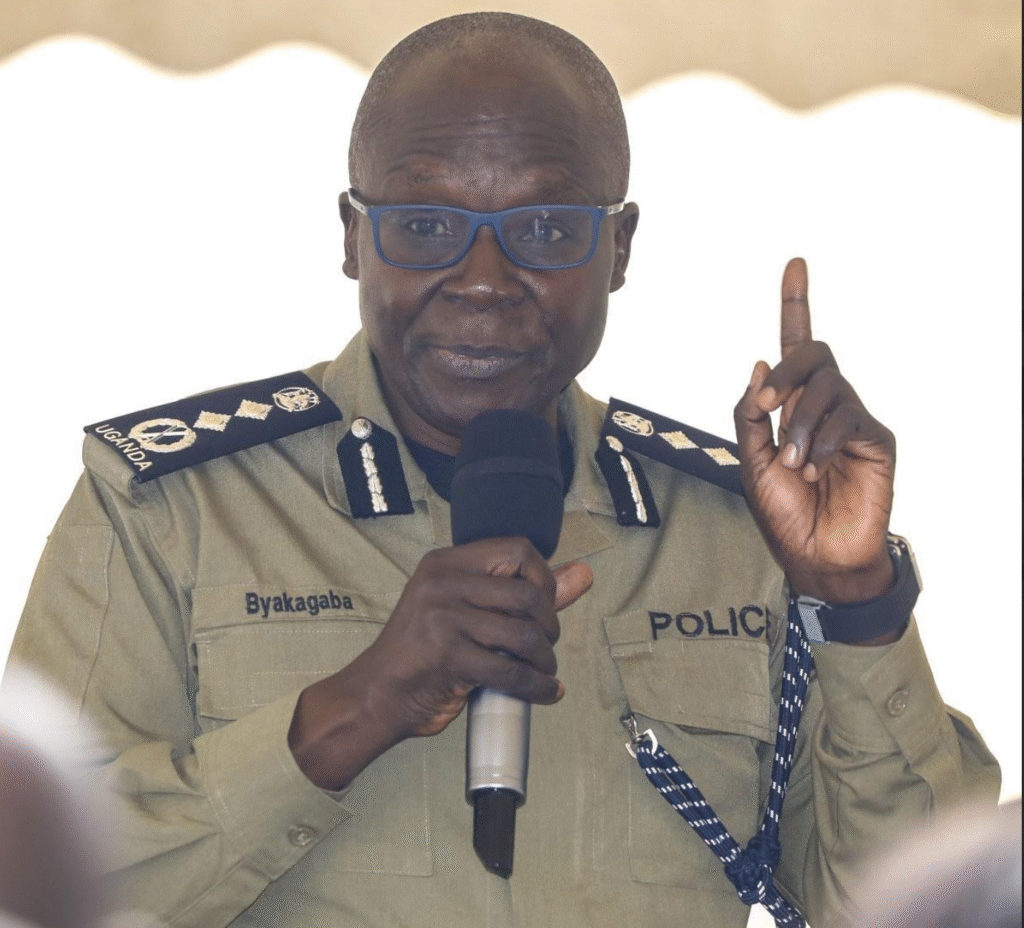
As Uganda gears up for the 2026 general elections, the national police force has unveiled a new structure of electoral security management aimed at curbing tensions and promoting peaceful participation. The Inspector General of Police (IGP), Abas Byakagaba, has appointed nine senior officers to oversee newly designated Electoral Policing Zones across the country.
The announcement, made Tuesday from police headquarters in Naguru, is part of a broader pre-election security strategy. According to the police, the zonal structure will strengthen coordination and enable more focused deployment of personnel in politically sensitive regions.
“These zonal commanders will lead efforts to maintain peace, monitor political activities, and address emerging threats in their respective areas as the country heads into a tense election period,” a statement from the police indicated.
Zonal Commanders and Their Jurisdictions:
- AIGP Moses Kafero – Busoga Zone (based in Jinja): Covering Busoga North, Busoga East, Kiira, and Sezibwa
- AIGP Stephen Tanui – Northern Zone (Gulu): Overseeing Aswa East, Aswa West, West Nile, and North West Nile
- CP Patrick Lawot – Karamoja Zone (Moroto): Supervising Mt Moroto, Kidepo, Elgon, Sipi, and Bukedi regions
- CP Paul Nkore – Kyoga Zone (Soroti): Covering North Kyoga, East Kyoga, and South Kyoga
- CP Godfrey Maate – Central Zone (Masaka): Responsible for Masaka West, Masaka East, Katonga, and Wamala
- CP Moses Muluya – Albertine Zone (Hoima): In charge of Albertine South, Albertine North, and Savannah
- CP Richard Ecega – Kampala Metropolitan Zone: Monitoring KMP North, South, and East
- CP Hillary Kulaigye – South Western Zone (Mbarara): Covering Rwizi, Kigezi, and Greater Bushenyi
- CP Dennis Namuwoza – Rwenzori Zone (Fort Portal): Managing Rwenzori East and West
Tackling Rising Election-Related Tensions
The move comes amid increasing reports of political unrest in several regions. Police spokesperson ACP R. Kituuma noted a rise in provocative behavior from political aspirants and their supporters. Reported incidents include acts of vandalism, physical confrontations, defamation on media platforms, and intentional disruption of rival rallies.
Kituuma said law enforcement agencies have identified electoral hotspots and are working with stakeholders to de-escalate tensions.
“The use of loudspeakers to disrupt opposing rallies, hiring of violent groups, and the spread of divisive language must be condemned and curtailed,” Kituuma emphasized.
The IGP has personally toured several districts—among them Mbarara, Kabale, and Rukungiri—where he met local leaders, district security committees, and candidates, especially within the context of the ongoing NRM party primaries.
While clashes have been recorded in some locations, the police also highlighted areas where campaigns have proceeded peacefully, crediting early intervention and dialogue with political actors.
Security agencies have pledged to maintain neutrality while ensuring public order, with continued community engagement and increased surveillance in high-risk zones.
Ugandans are expected to head to the polls in early 2026 to elect their next leaders, with political activity already ramping up across the country.